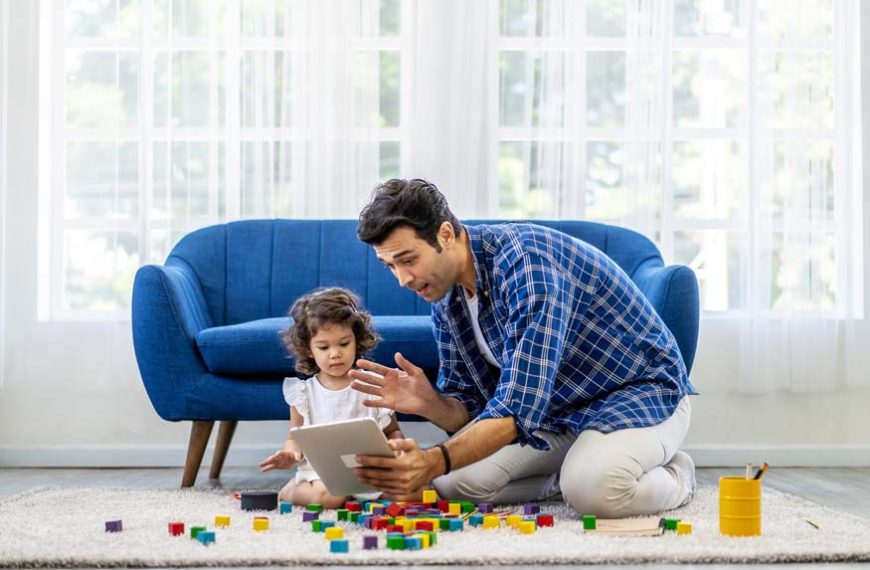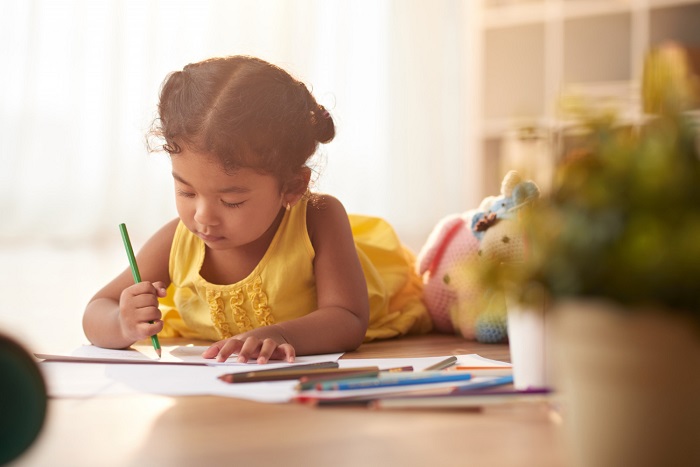As parents, caregivers, or educators, understanding the importance of playtime for toddlers is crucial for the overall development of these little minds. Play is not just a means of entertainment; it serves as a powerful tool for learning and growth during the early years. In this blog, we’ll delve into the question of how long you should play with your toddler, explore the best games to engage them and discuss the vital role of playtime in their developmental journey.
The Importance of Playtime for Toddlers:
- Cognitive Development:
- Language Skills:
- Social and Emotional Well-being:
- Fine and Gross Motor Skills:
- Imagination and Creativity:
Playtime stimulates cognitive development by encouraging toddlers to explore, imagine, and solve problems. Activities like building blocks, sorting shapes, and simple puzzles enhance their cognitive skills.
Engaging in play conversations with toddlers fosters language development. Naming objects, describing actions, and asking questions during play contribute to the expansion of their vocabulary and communication skills.
Playtime is a natural arena for toddlers to practise social interactions. Sharing, taking turns, and playing with others contribute to the development of social skills and emotional intelligence.
Various play activities, such as drawing, stacking, and playing catch, aid in the development of both fine and gross motor skills. These physical movements are essential for overall coordination and control.
Through play, toddlers unleash their imagination and creativity. Whether engaging in pretend play or exploring art activities, toddlers learn to express themselves and think outside the box.
How Long Should You Play with Your Toddler?
The duration of playtime with toddlers varies based on factors such as the child’s age, individual temperament, and the specific activities involved. Here are general guidelines to help parents gauge the appropriate duration:
- Short, Frequent Sessions:
- Responsive to Signs of Fatigue:
- Quality Over Quantity:
- Tailor to Individual Preferences:
- Balanced Approach:
Toddlers have short attention spans, so aim for multiple short play sessions throughout the day. Depending on the child’s interest and engagement, these can range from 10 to 30 minutes.
Pay attention to your toddler’s cues. If they seem tired, fussy, or disinterested, it’s a sign that the play session has served its purpose, and it’s time for a break.
The quality of play matters more than the quantity. Focus on creating meaningful and engaging play experiences rather than extending playtime for the sake of duration.
Each toddler is unique, and their play preferences vary. Some may enjoy longer play sessions, while others prefer shorter bursts. Pay attention to your child’s cues and adapt accordingly.
Strike a balance between structured and unstructured play. Structured activities with specific goals can be interspersed with free play where toddlers explore and create on their own.
Best Games to Play with Toddlers:
- Building Blocks:
- Sensory Play:
- Interactive Storytelling:
- Nature Exploration:
- Music and Movement:
- Puzzle Time:
- Imaginative Play:
- Arts and Crafts:
- Water Play:
- Ball Games:
Engage toddlers in building with colourful blocks. This activity enhances fine motor skills, spatial awareness, and creativity. Build towers together, name the colours, and count the blocks.
Set up a sensory play station with materials like sand, water, or playdough. Sensory play stimulates tactile exploration and introduces toddlers to different textures.
Use picture books and engage in interactive storytelling. Ask questions, encourage toddlers to point to images, and let them participate in the narrative. This fosters language development and a love for reading.
Take toddlers on a nature walk in your backyard or a nearby park. Collect leaves, stones, or flowers, and discuss their colours and textures. This activity encourages curiosity about the natural world.
Play music and encourage toddlers to dance or move to the beat. This not only enhances gross motor skills but also introduces them to rhythm and coordination.
Introduce simple puzzles with large pieces. As toddlers fit the pieces together, they develop problem-solving skills and hand-eye coordination.
Provide props for imaginative play. Whether it’s a pretend kitchen, doctor’s kit, or toy animals, toddlers enjoy creating scenarios and using their imagination.
Set up a crafting station with age-appropriate materials. Activities like finger painting, colouring, and glueing help toddlers explore their creativity and improve fine motor skills.
Fill a basin with water and let toddlers splash and play with floating toys. Water play not only entertains but also enhances sensory experiences and hand-eye coordination.
Play simple ball games with toddlers, such as rolling or gently tossing a softball. This activity improves coordination, balance, and introduces them to basic sports skills.
Tips for Effective Toddler Playtime:
- Follow Their Lead:
- Be Present and Engaged:
- Encourage Independence:
- Rotate Toys:
- Create a Safe Play Environment:
- Celebrate Achievements:
- Extend Play to Outdoors:
- Playdate Opportunities:
- Maintain a Routine:
- Embrace Messy Play:
Pay attention to your toddler’s interests and let them take the lead in play. This ensures that the activities are engaging and enjoyable for them.
During playtime, focus on being present and engaged. Put away distractions like phones to fully participate and connect with your toddler.
Foster independence by allowing toddlers to choose activities or make simple decisions during playtime. This empowers them and builds confidence.
To keep playtime exciting, rotate toys regularly. Introduce new activities or bring back ones that haven’t been used in a while to spark interest.
Ensure that the play area is safe and free from hazards. Childproof the space and supervise activities that involve small objects or potential risks.
Acknowledge and celebrate your toddler’s achievements during play. Positive reinforcement encourages a sense of accomplishment and boosts self-esteem.
Whenever possible, take playtime outdoors. Outdoor play provides additional sensory experiences and opportunities for physical activity.
Arrange playdates with other toddlers. Social interactions with peers contribute to the development of social skills and provide additional playtime opportunities.
Incorporate playtime into a daily routine. Consistency helps toddlers anticipate and look forward to play sessions as a regular part of their day.
Don’t shy away from messy play activities. Activities like finger painting or playing with water may create a mess, but they also contribute to sensory exploration and creativity.
Conclusion:
Playtime is not just a break from routine; it is a fundamental aspect of a toddler’s development. Through play, toddlers explore the world, develop essential skills, and build a foundation for lifelong learning.
EuroKids understands the pivotal role playtime plays in the holistic development of toddlers. Our play environments are designed to stimulate creativity, encourage exploration, and foster a love for learning. From colourful classrooms to engaging outdoor spaces, EuroKids provides a backdrop where every moment is an opportunity for joyful discovery.















